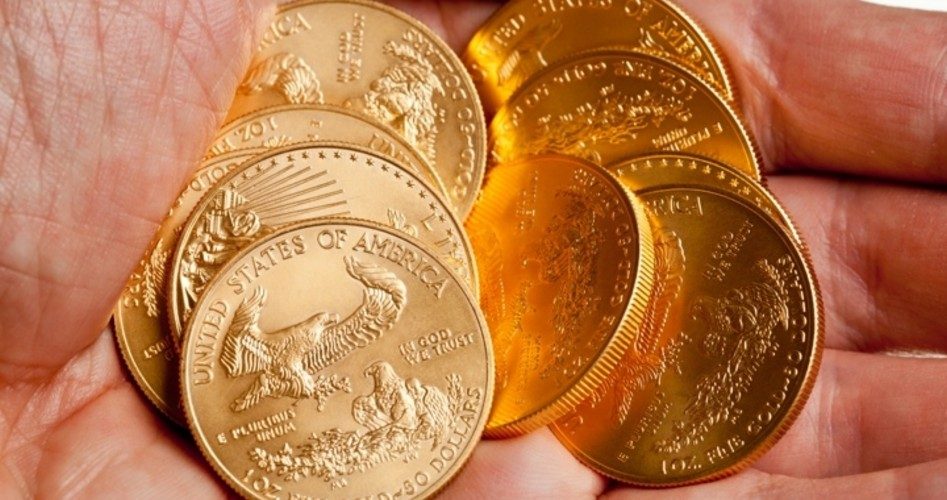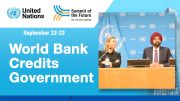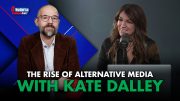
On June 4, Oklahoma joined Utah, Texas, and Louisiana in affirming that gold and silver coins are (as they always have been under the Constitution) legal tender in the payment of debts in the state. On the surface this seems almost nonsensical: affirming a right that already exists in Article I, Section 10 of the U.S. Constitution. But it is much more than that.
Senate Bill 862, which Oklahoma Governor Mary Fallin signed into law this week, says,
Gold and silver coins issued by the United States government are legal tender in the State of Oklahoma.
No person may compel another person to tender or accept gold or silver coins that are issued by the United States government, except as agreed upon by contract.
The new law also exempts all state-level taxes that Oklahoma residents would otherwise have to pay when exchanging gold or silver back into paper money:
For taxable years beginning on or after January 1, 2015, there shall be exempt from Oklahoma taxable income, or in the case of an individual, the Oklahoma adjusted gross income, any amount of net capital gains … which result from the sale or exchange of gold or silver for another form of legal tender.
All this appears to do is affirm the language from the U.S. Constitution: “No state shall … make any Thing but gold and silver Coin a Tender in Payment of Debts.”
But it does much more. Sean Fieler, Chairman of American Principles in Action, one of the bill’s primary supporters and promoters, came close to explaining why:
I commend the people of Oklahoma, particularly Senator Clarke Jolley and Governor Mary Fallin, for asserting their state’s constitutional right to declare gold and silver legal tender.
With the Federal Reserve actively suppressing interest rates and eroding the purchasing power of the U.S. dollar, it is welcome news to see one more state give its citizens free access to money that holds its value over time.
It’s about options. When citizens become comfortable with using money that retains its value over time, it will mark the beginning of the end of paper currency backed by nothing. This would be the inevitable end point of the process that began on August 15, 1971 when then-President Richard Nixon unilaterally ended the dollar’s convertibility into gold. For the past 43 years the world has been subjected to floating currencies pegged to nothing other than future promises to pay in more paper money. As Ron Paul noted in his book The Case for Gold, first published in 1982,
Under a gold standard, the amount of credit that an economy can support is determined by the economy’s tangible assets, since every credit instrument is ultimately a claim on some tangible asset. But [today’s] government bonds are not backed by tangible wealth [but] only by the government’s promise to pay out of future tax revenues….
In the absence of a gold standard, there is no way to protect savings from confiscation through inflation….
This is the shabby secret of the welfare states’ tirades against gold. [Unlimited] deficit spending is simply a scheme for the hidden confiscation of wealth. Gold stands in the way of this insidious process.
Paul was referring to the “shabby secret” revealed by former Federal Reserve Chairman Alan Greenspan before he was assimilated by the monetary Borg of the Federal Reserve. In July of 1966, Greenspan wrote in Gold and Monetary Freedom about that secret:
In the absence of a gold standard there is no way to protect savings from confiscation through inflation. There is no safe store of value….
If everyone decided, for example, to convert all his [paper] bank deposits to silver [or gold] … bank deposits would lose their purchasing power and government-created bank credit would be worthless….
This is the shabby secret of the welfare statists’ tirades against gold. Deficit spending is simply a scheme for the “hidden” confiscation of wealth. Gold stands in the way of this insidious process….
If one grasps this, one has no difficulty in understanding the statists’ antagonism toward the gold standard.
That confiscation has been accelerating exponentially since 1971, as seen by clicking here to view price levels in the United States from 1965 through 2013. Once the gold standard was abandoned by Nixon in 1971, the price level in the United States has risen by a factor of six! Put another way, citizens’ paper money has lost almost 80 percent of its value in just 43 years.
That Oklahoma has joined with other states in its affirmation of gold and silver (with still others considering similar measures) could mark the beginning of the end of the paper machine itself — the Federal Reserve. William H. Greene is an economics professor at New York University’s Stern School of Business. While a seemingly unlikely spokesman for the abolition of the Fed, his view of the coming inevitable end of the Fed is remarkable:
Over time, as residents of the state use both Federal Reserve Notes and silver and gold coins, the fact that the coins hold their value more than Federal Reserve Notes do will lead to a “reverse Gresham’s Law” effect, where good money (gold and silver coins) will drive out bad money (Federal Reserve Notes). As this happens, a cascade of events can begin to occur, including … an influx of banking business from outside the state … and an eventual outcry against the use of Federal Reserve Notes for any transactions. [Emphasis added.]
This is most encouraging to the Tenth Amendment Center, which noted, “Once things get to that point, Federal Reserve notes would become largely unwanted and irrelevant for ordinary people. Nullifying the Fed on a state-by-state level is what will get us there.”
That’s what makes Oklahoma’s affirmation of a right so important. If every state would affirm their rights under Article I, Section 10, the end of the Fed would merely be a matter of time. Federal Reserve Notes would become irrelevant — a relic of a failed statist experiment in organized, sophisticated theft.
A graduate of Cornell University and a former investment advisor, Bob is a regular contributor to The New American magazine and blogs frequently at www.LightFromTheRight.com, primarily on economics and politics. He can be reached at [email protected].




